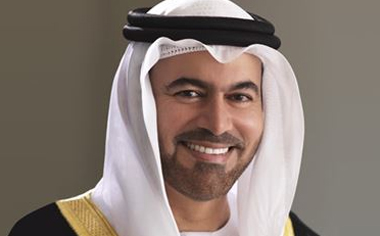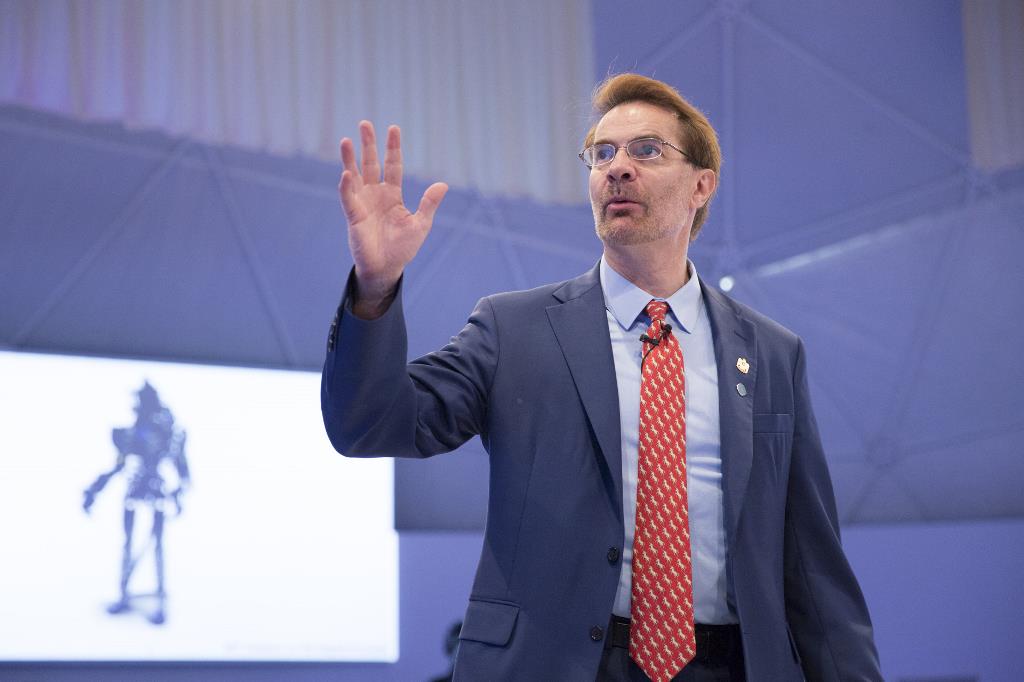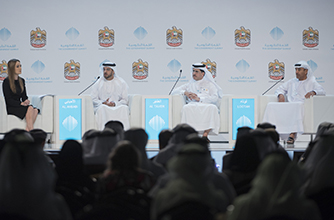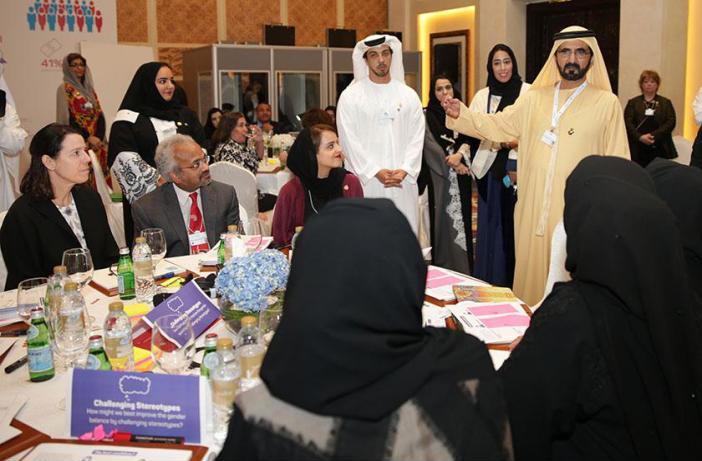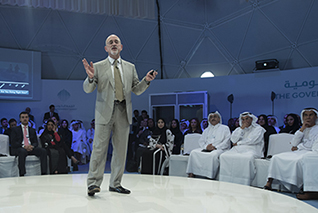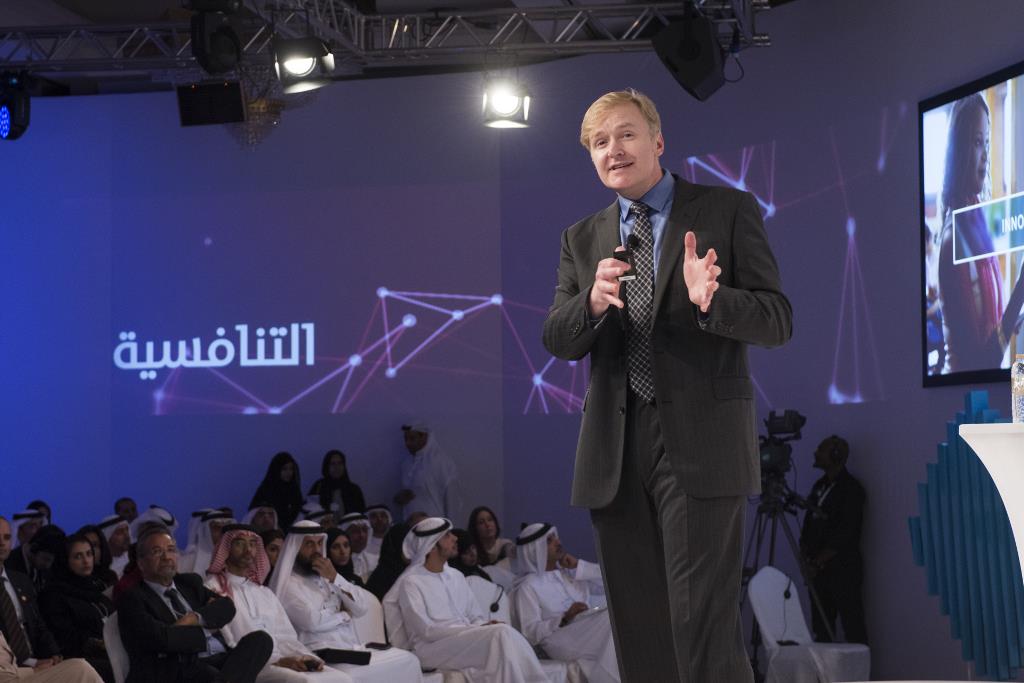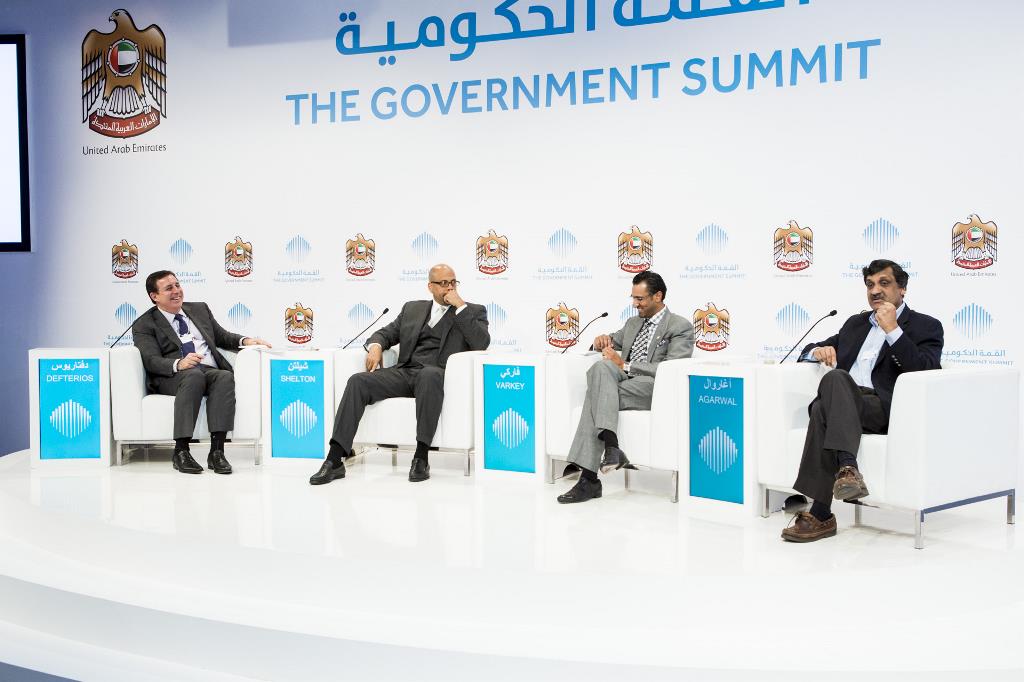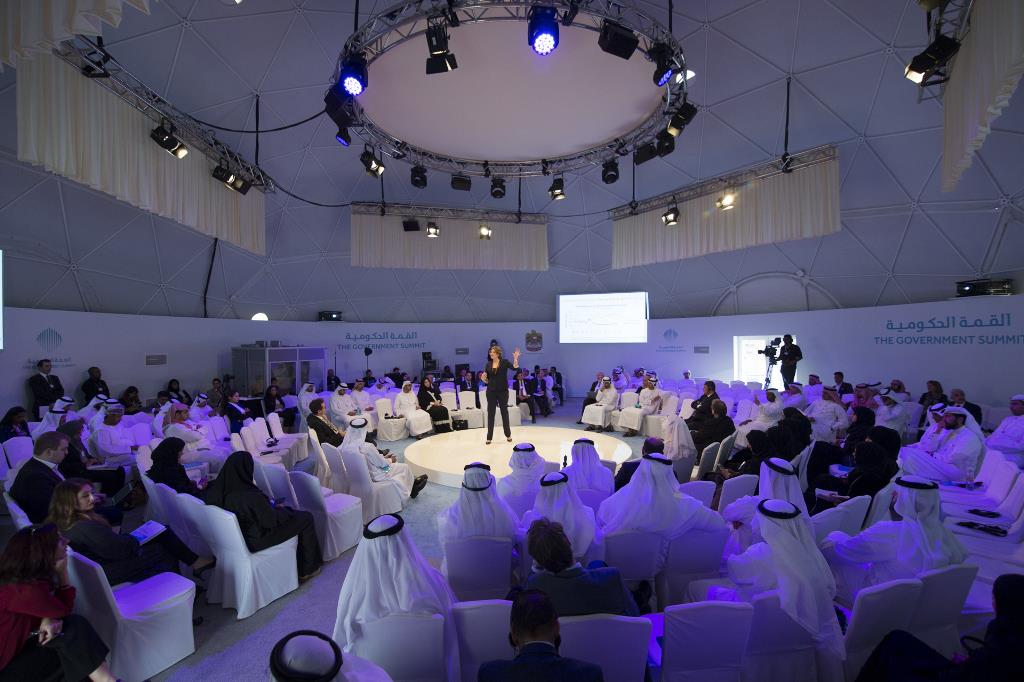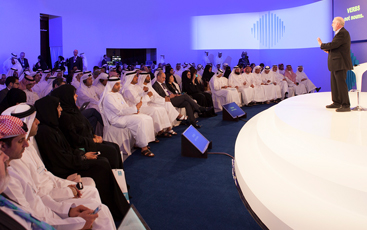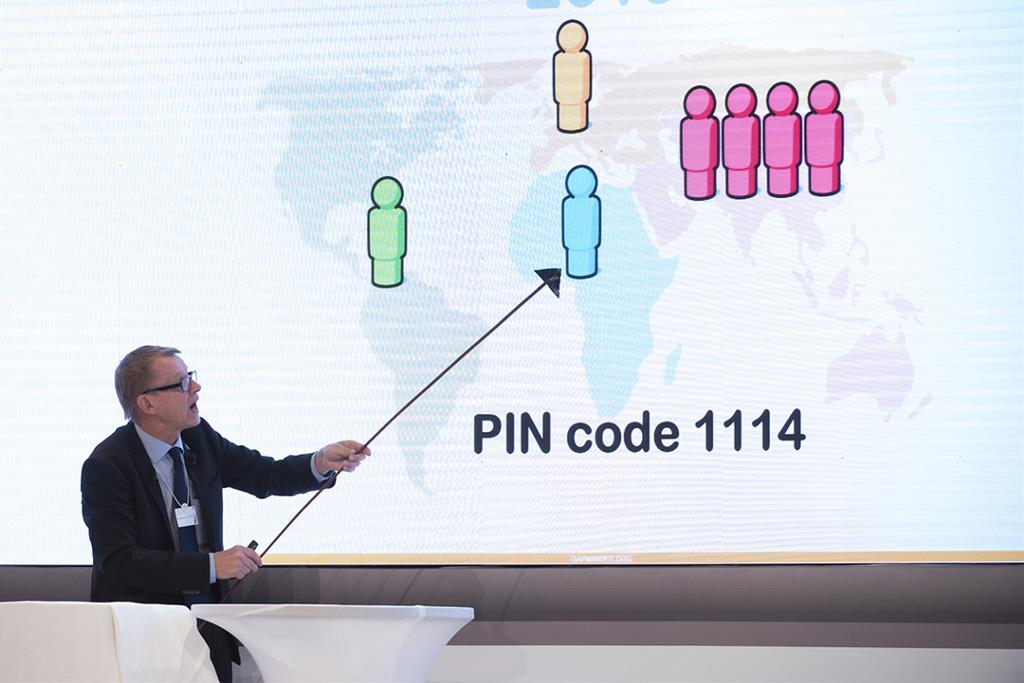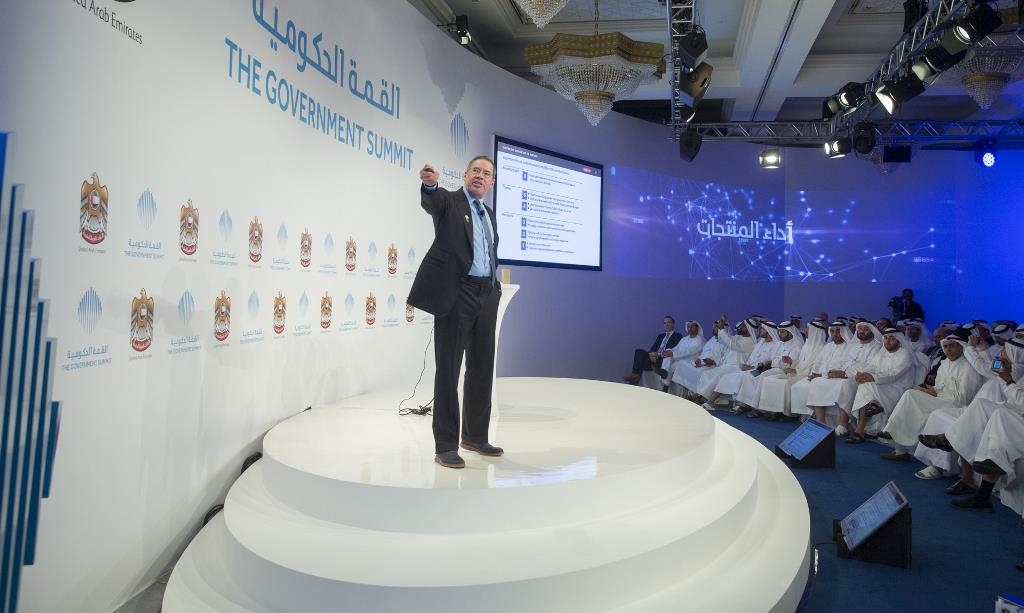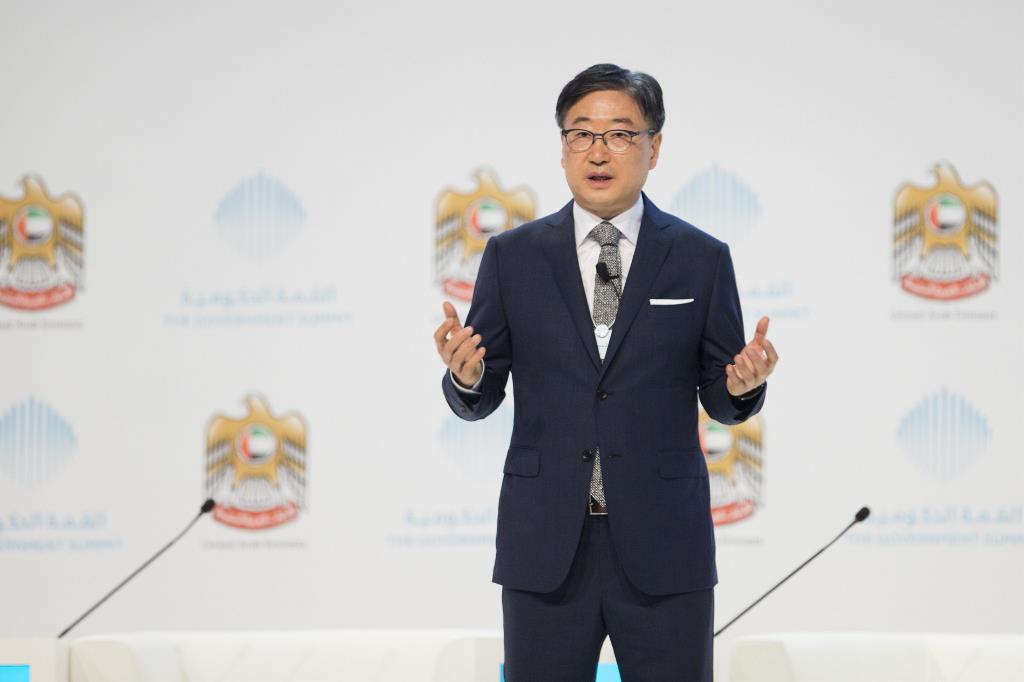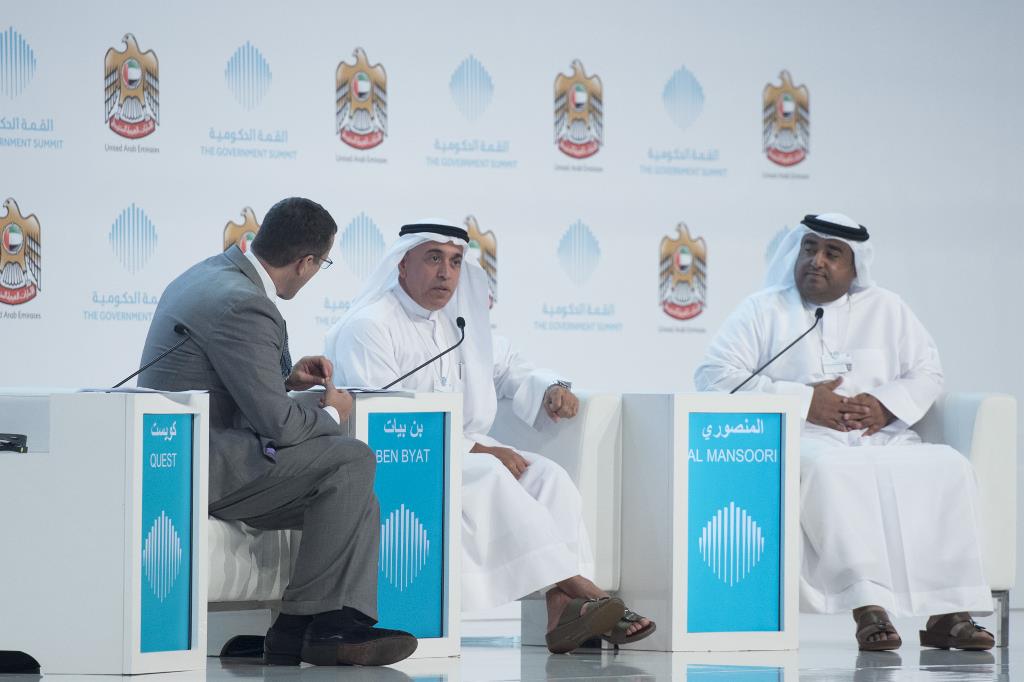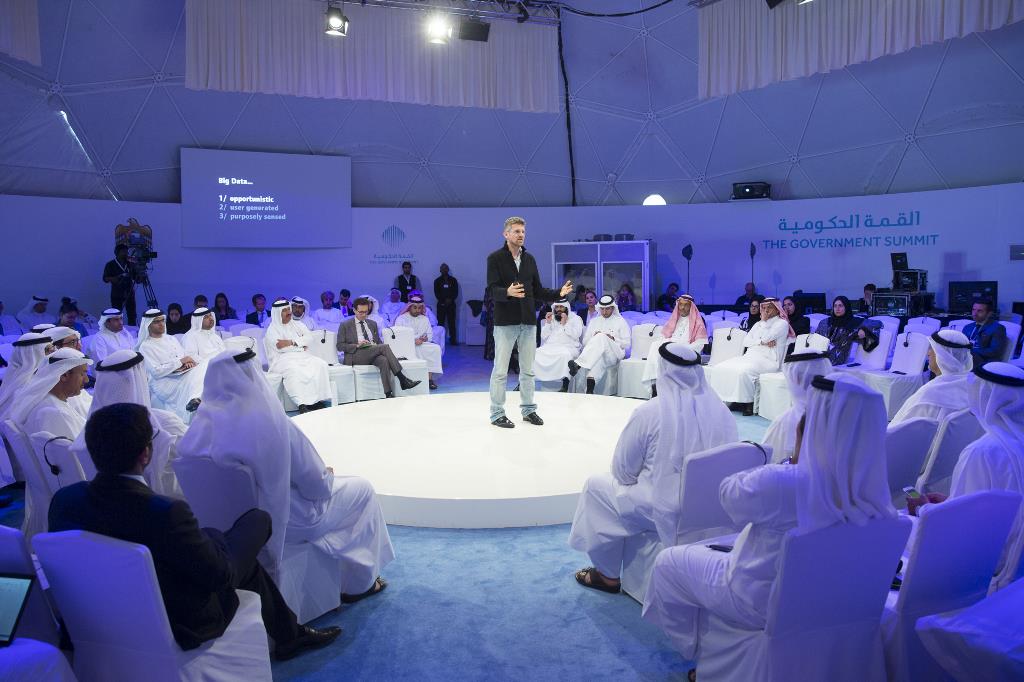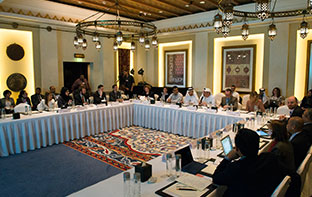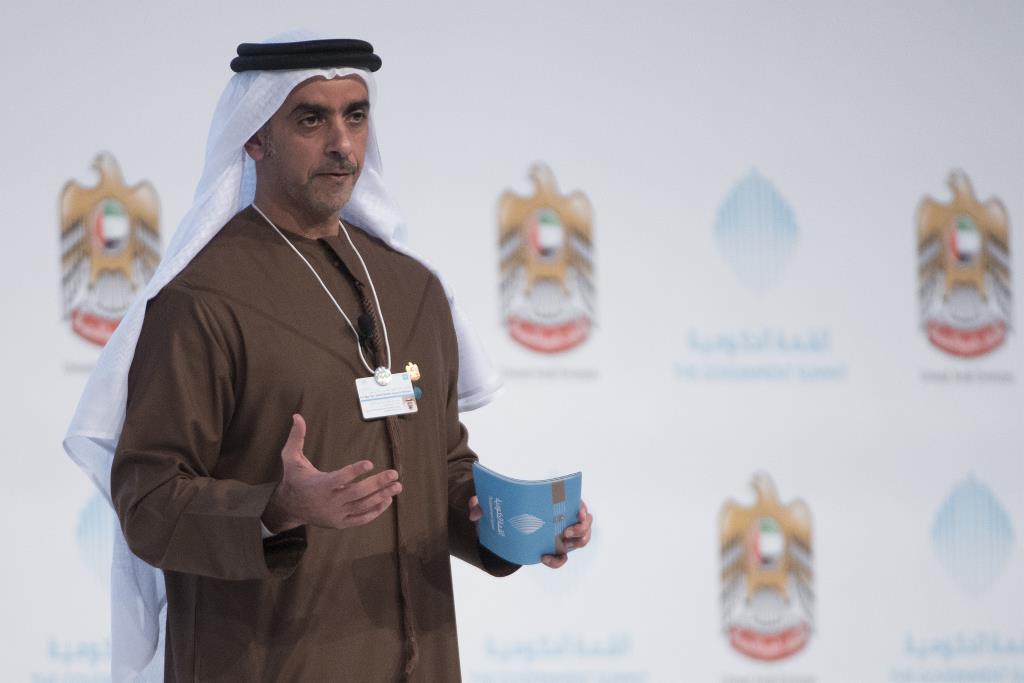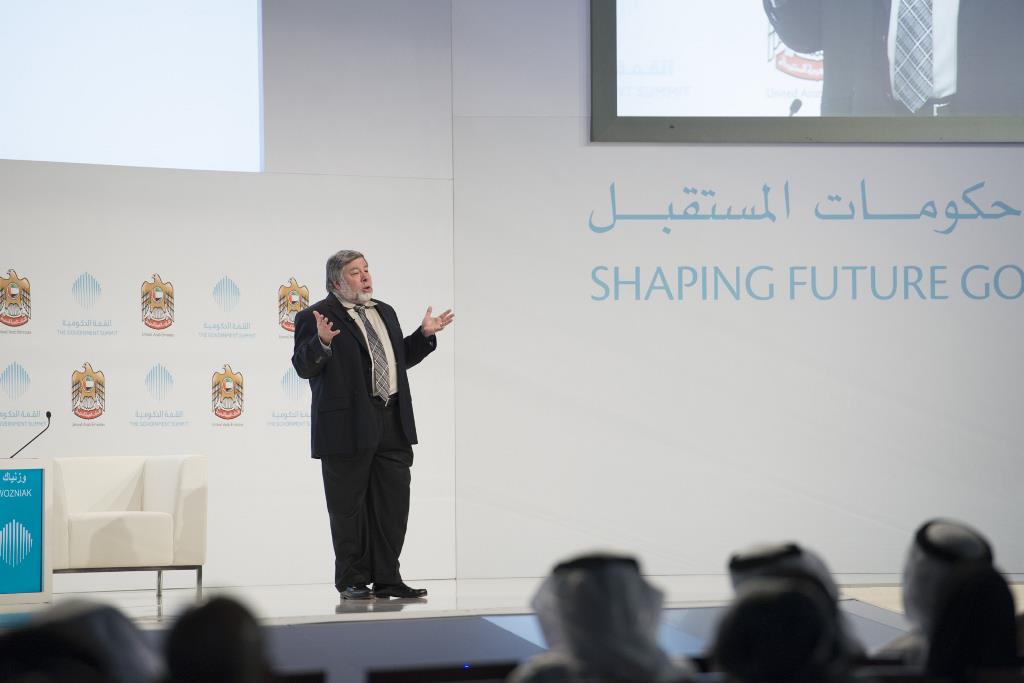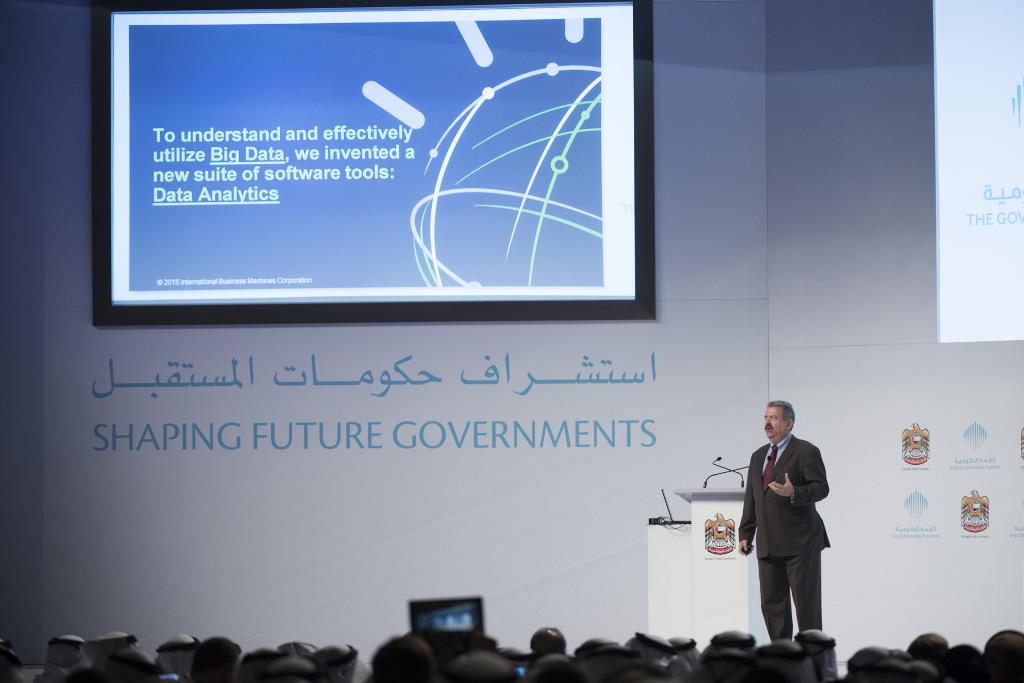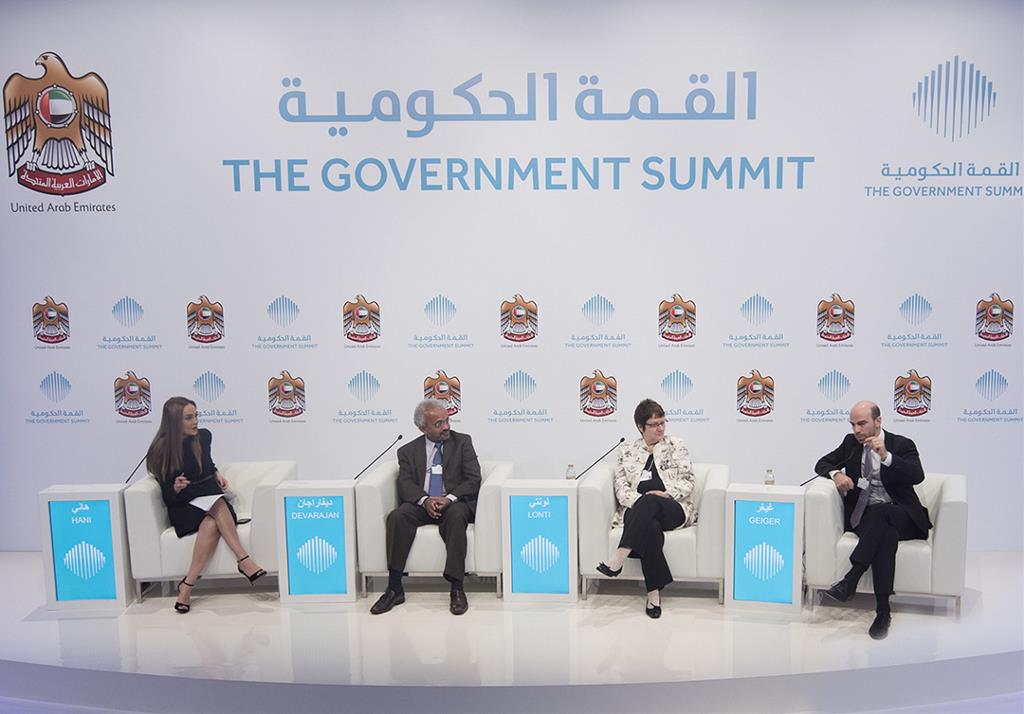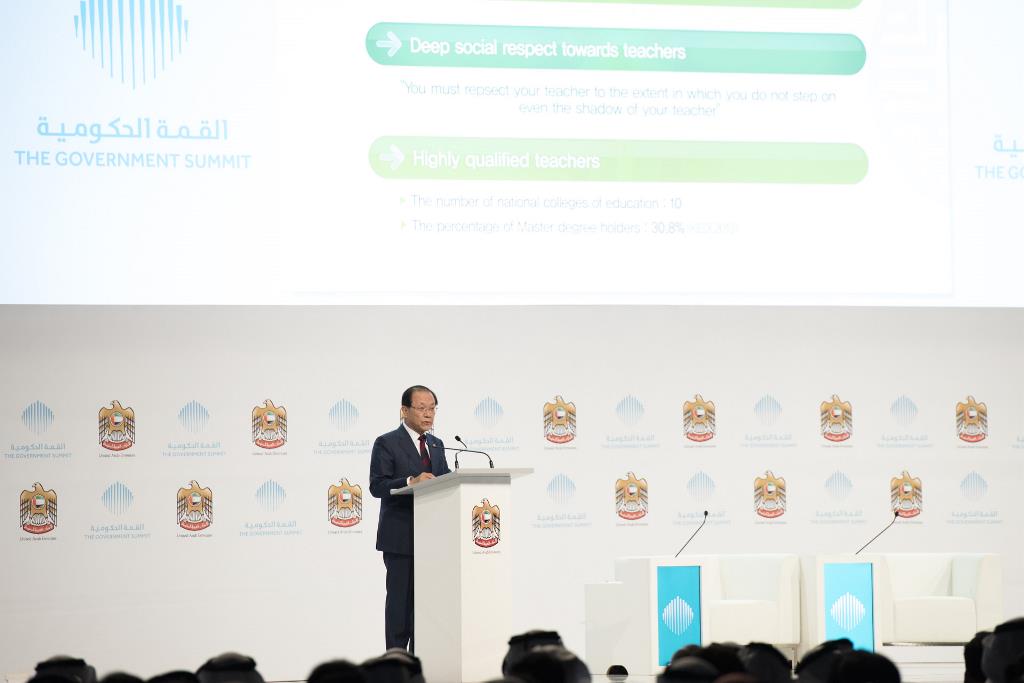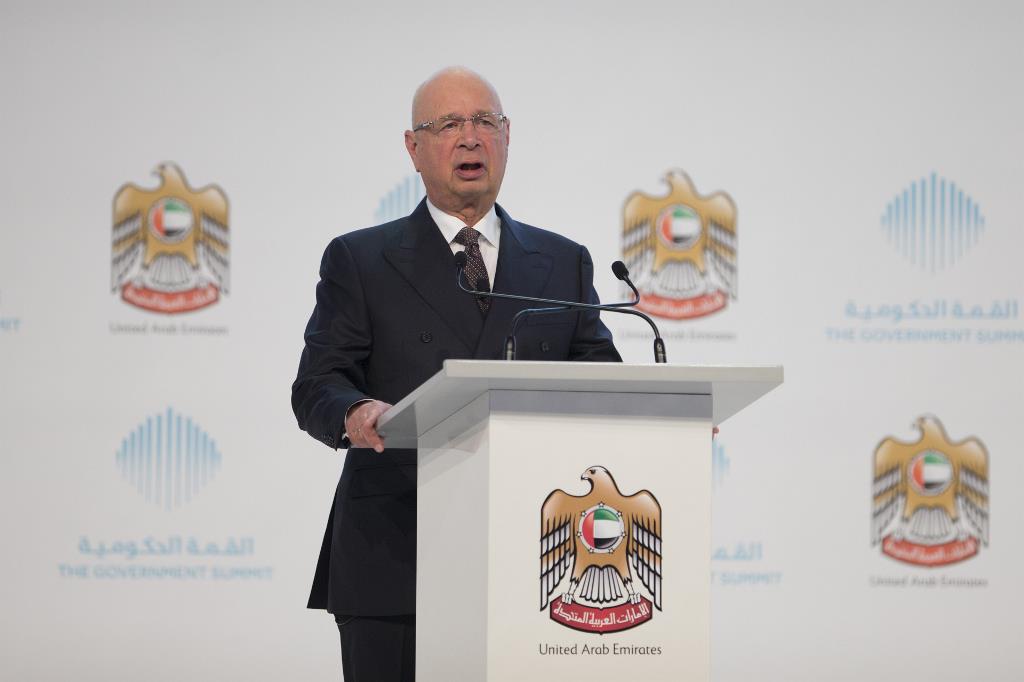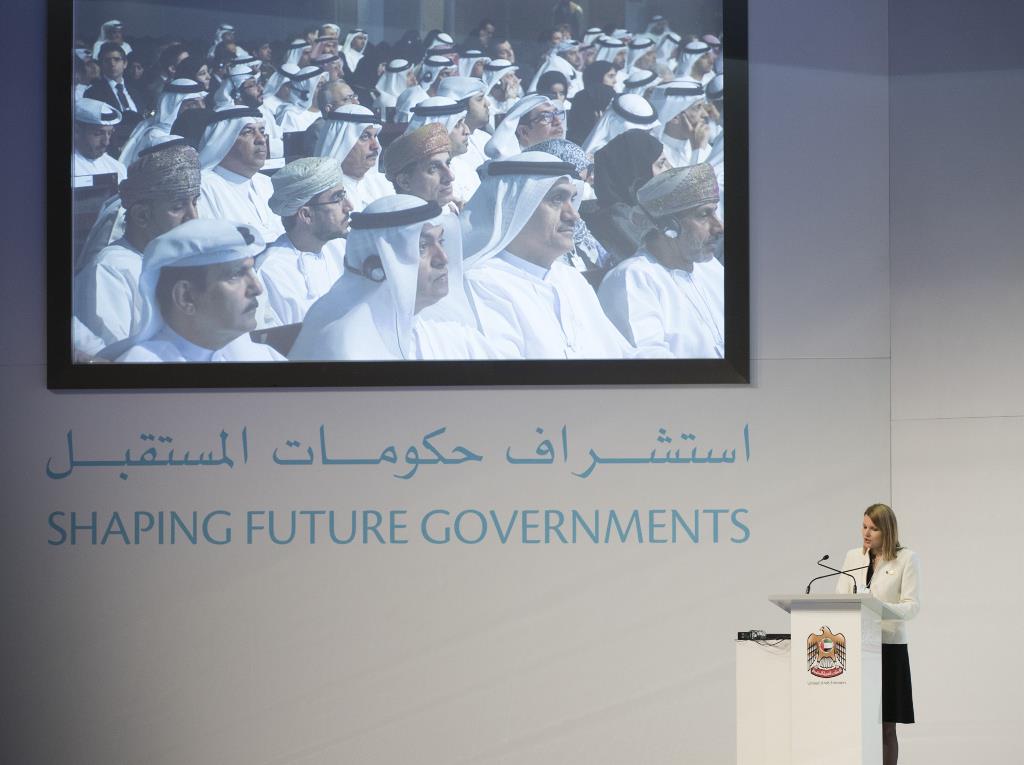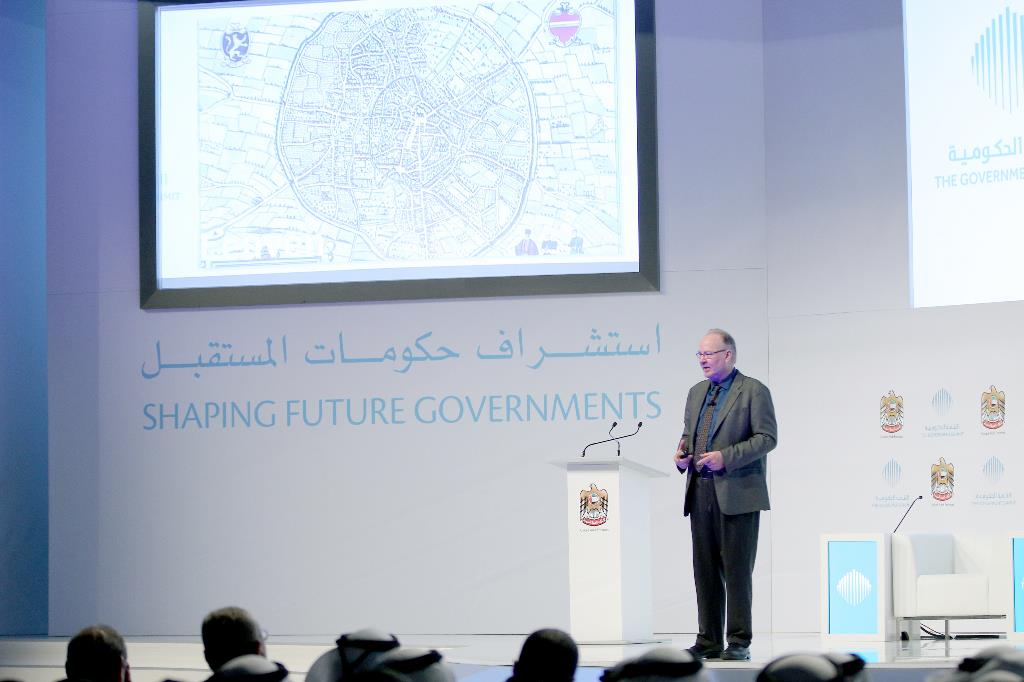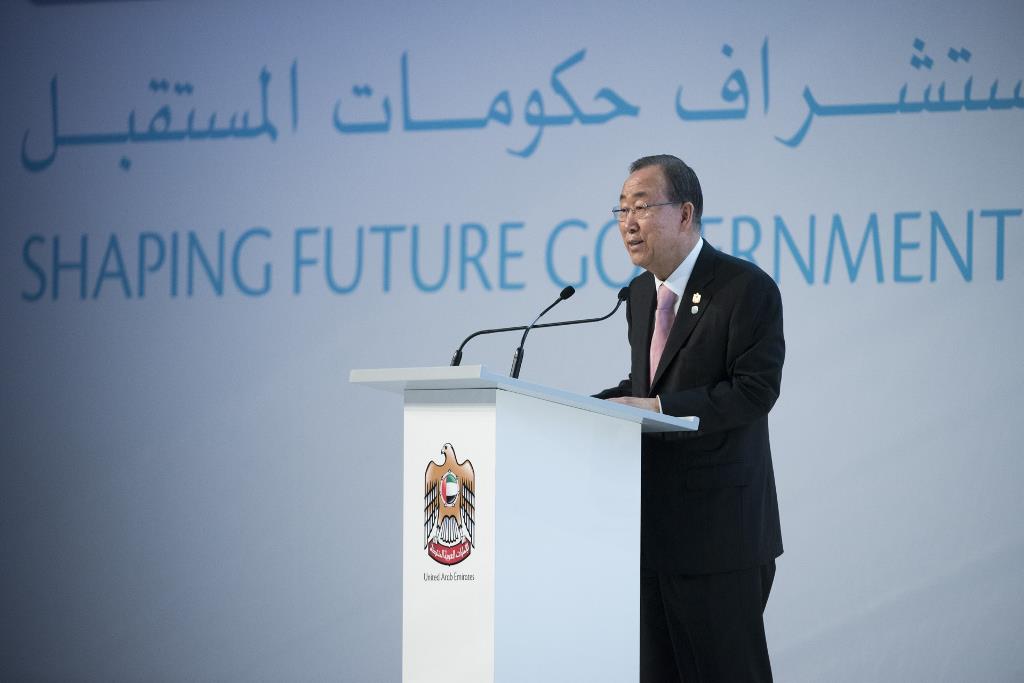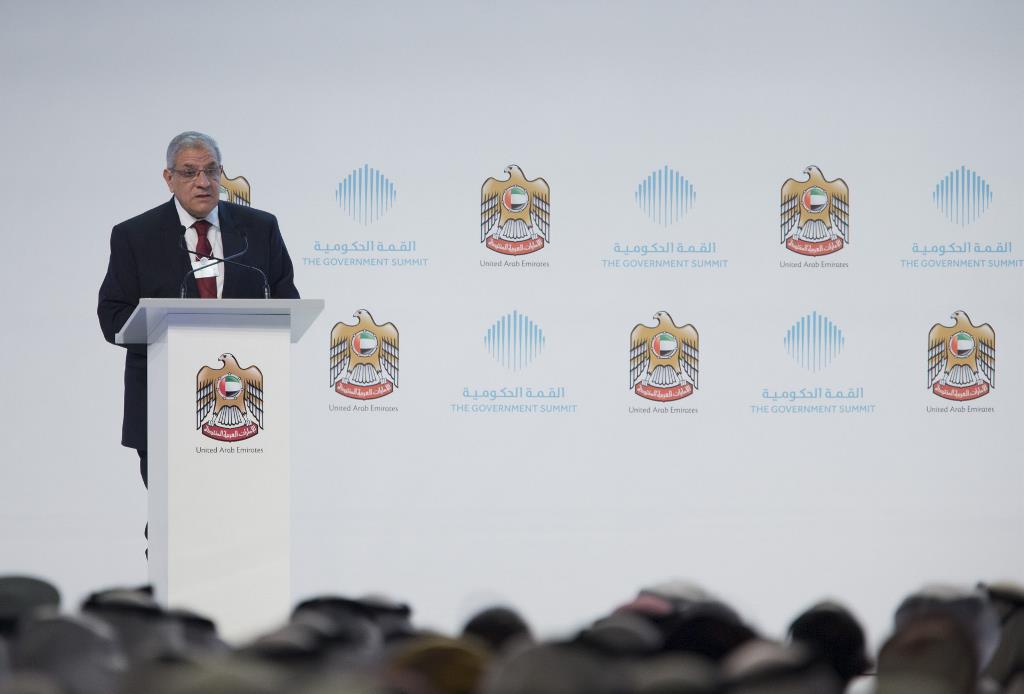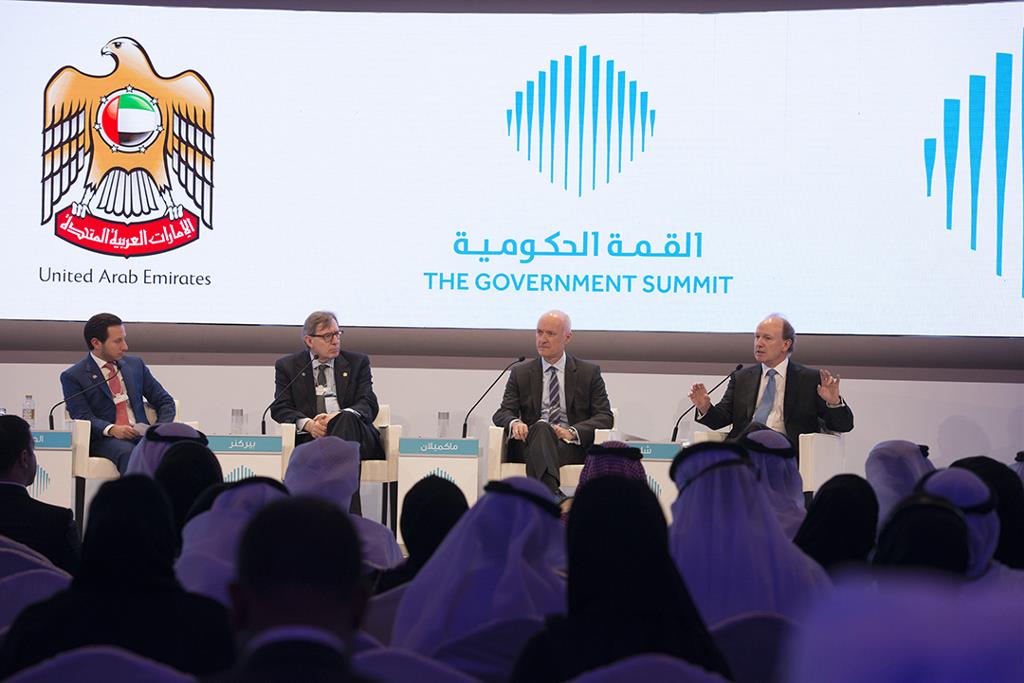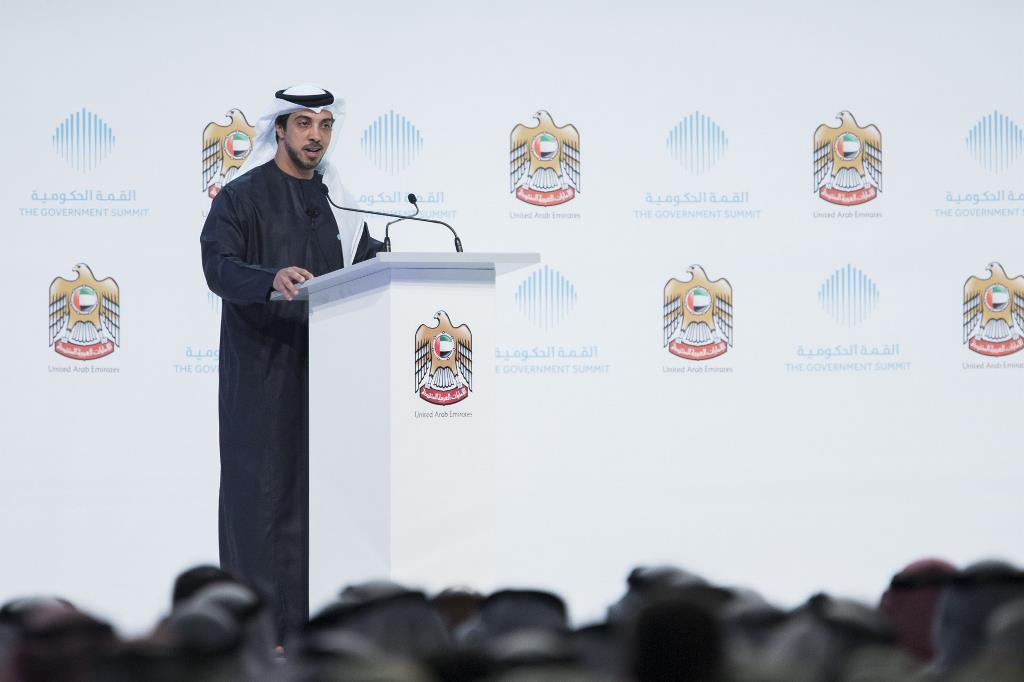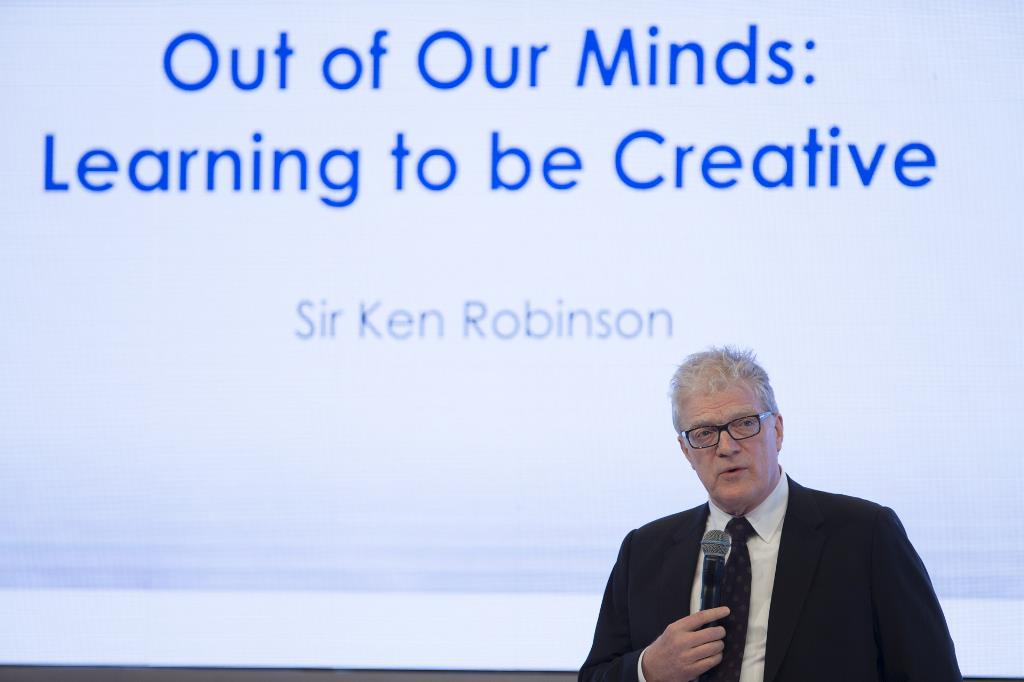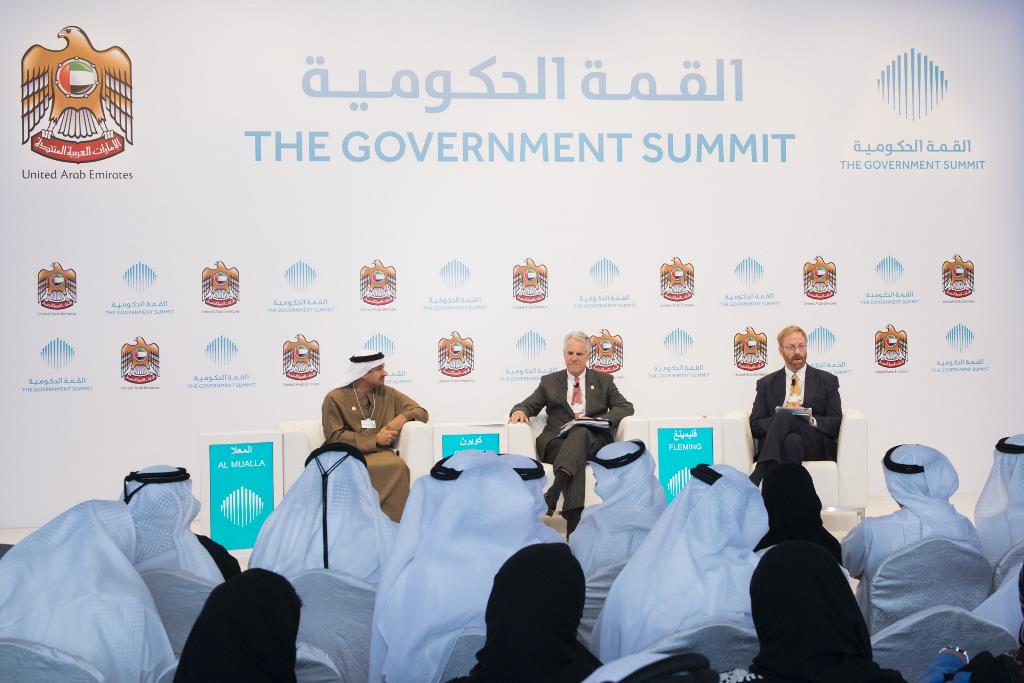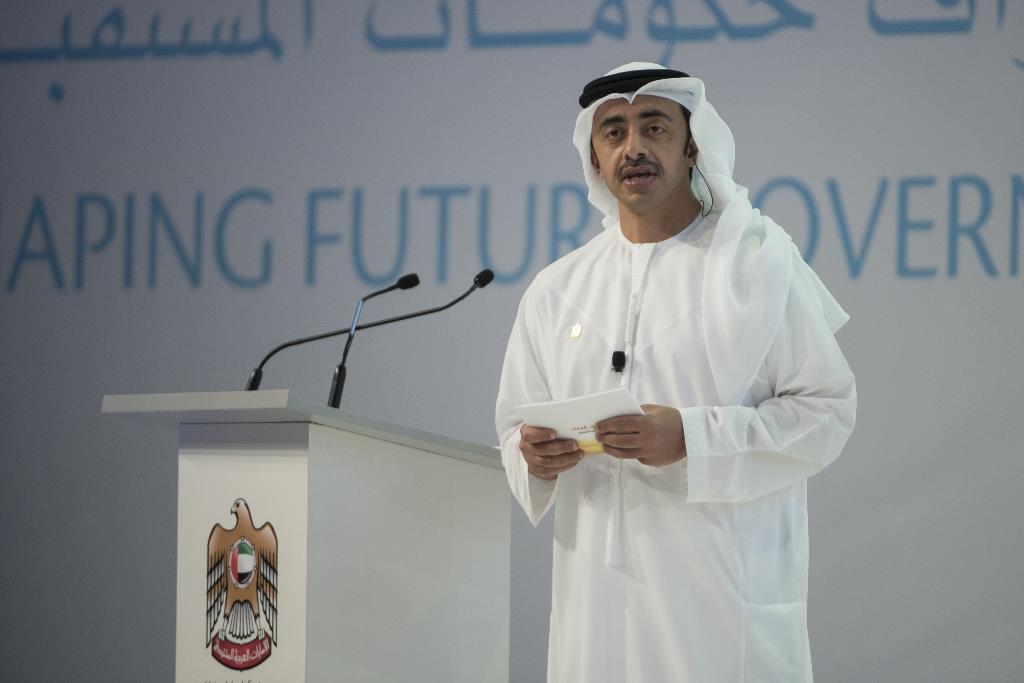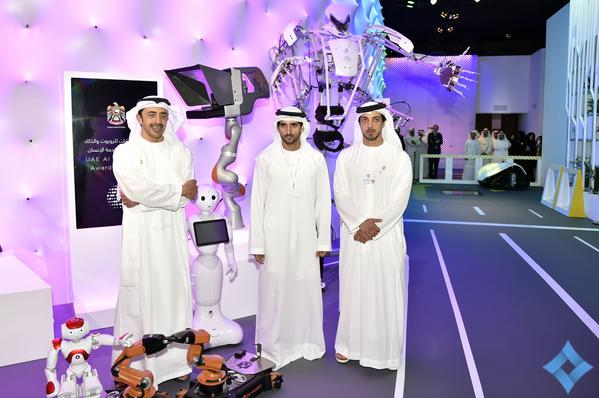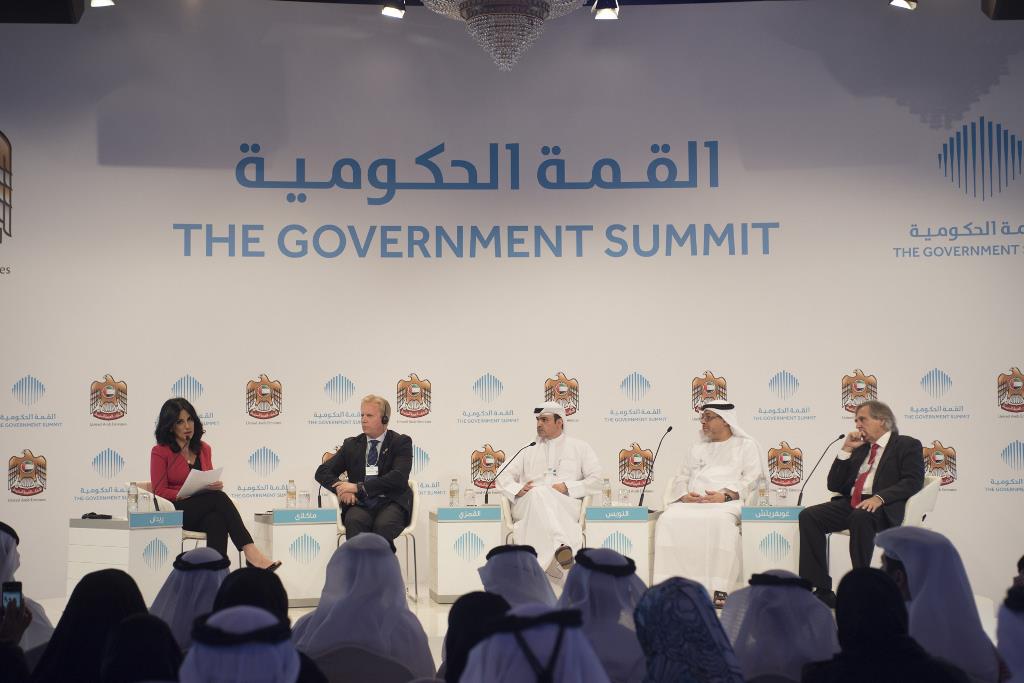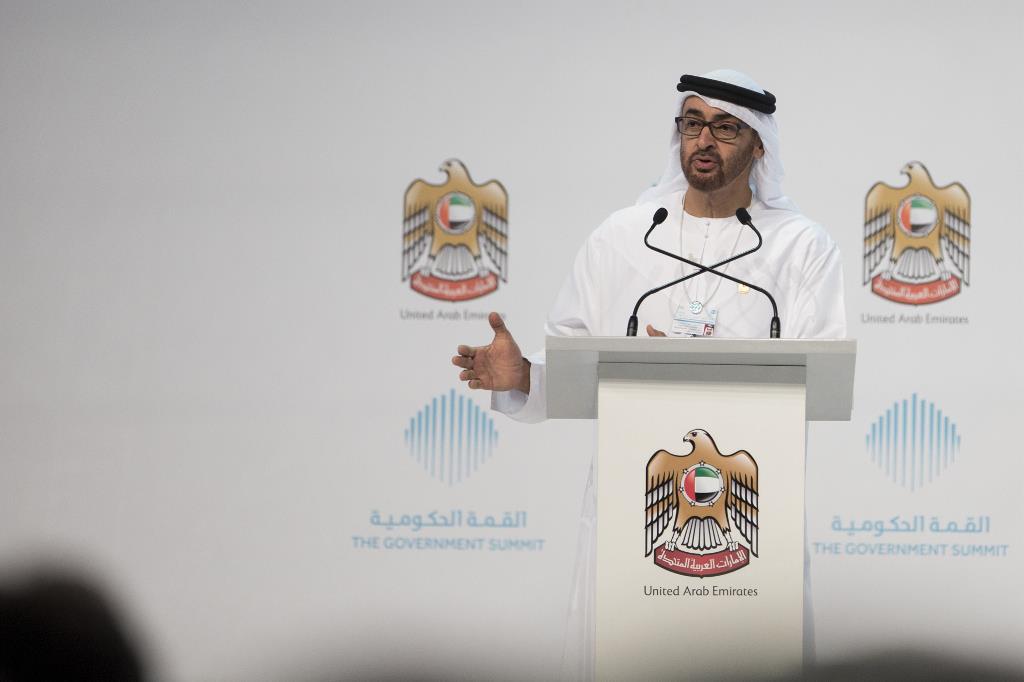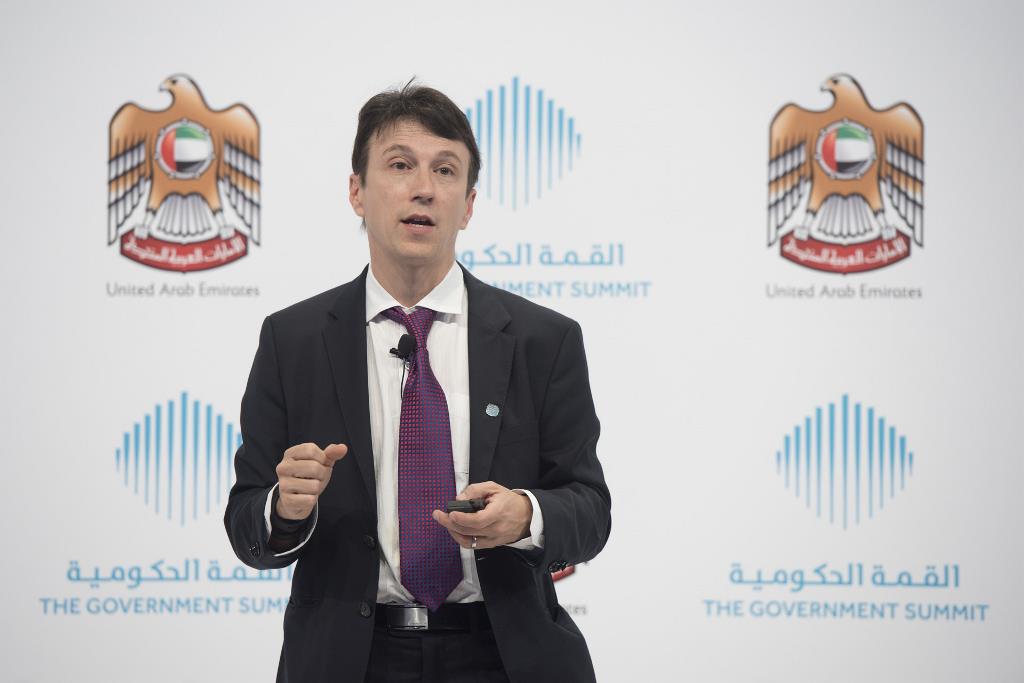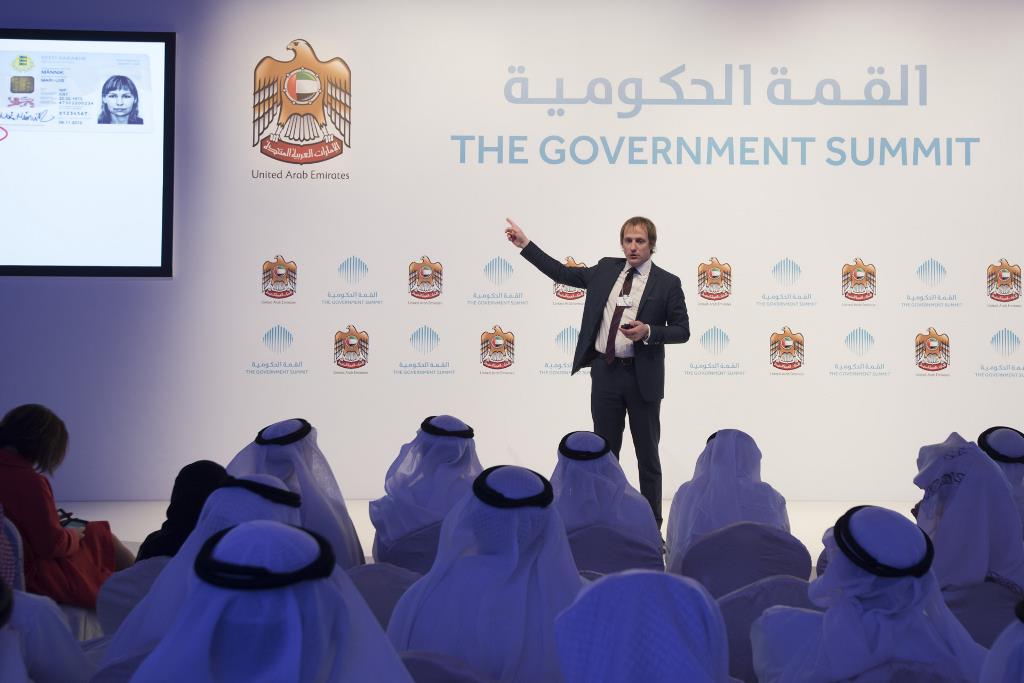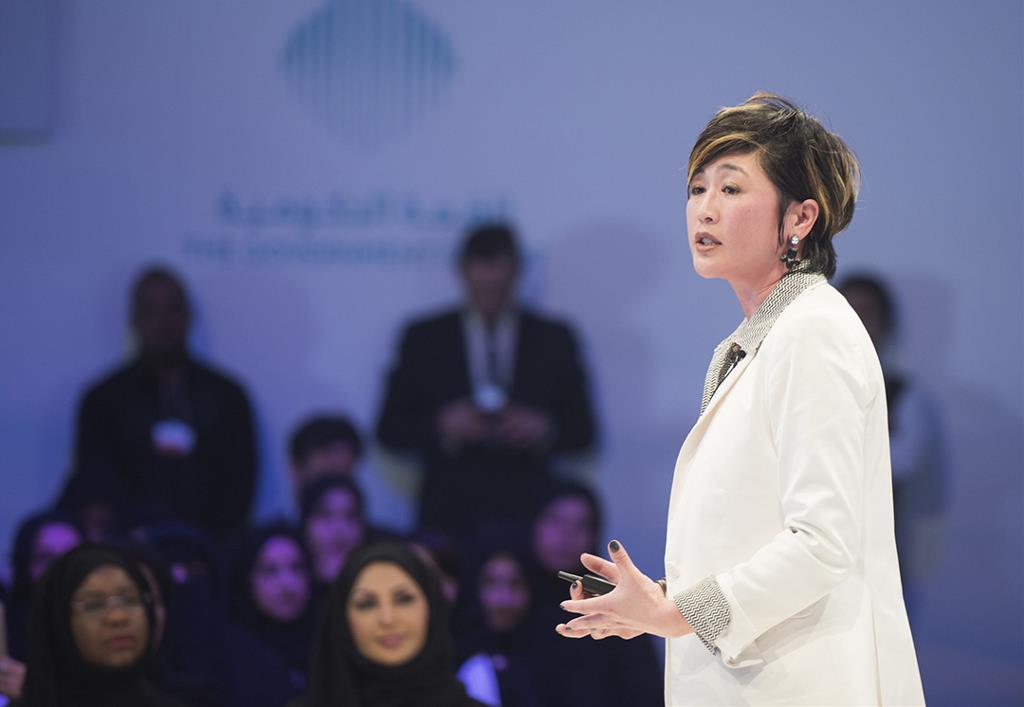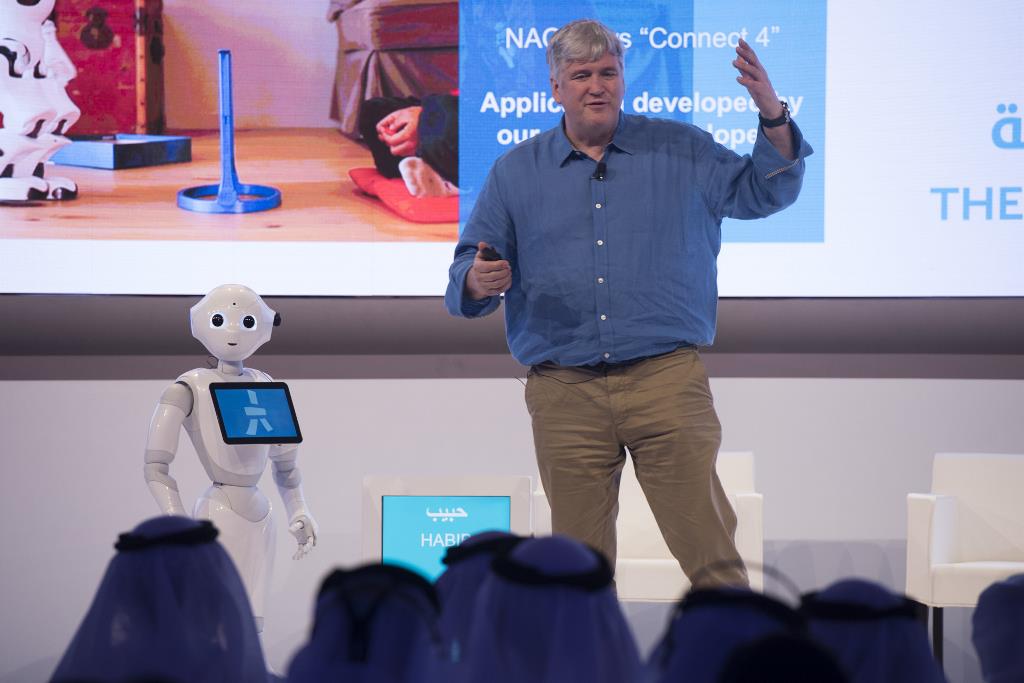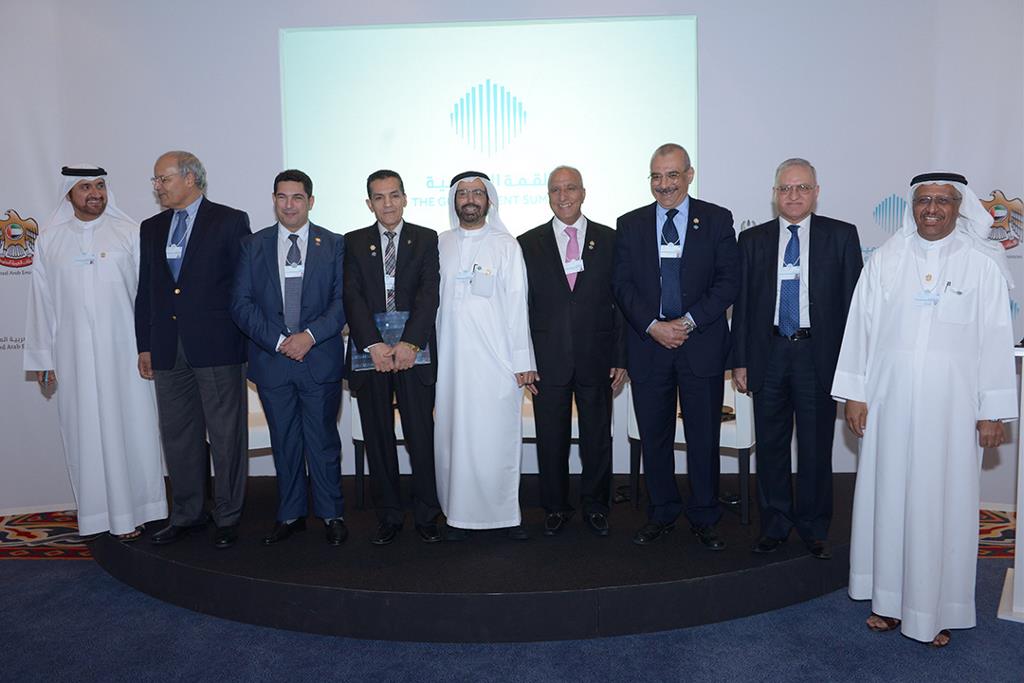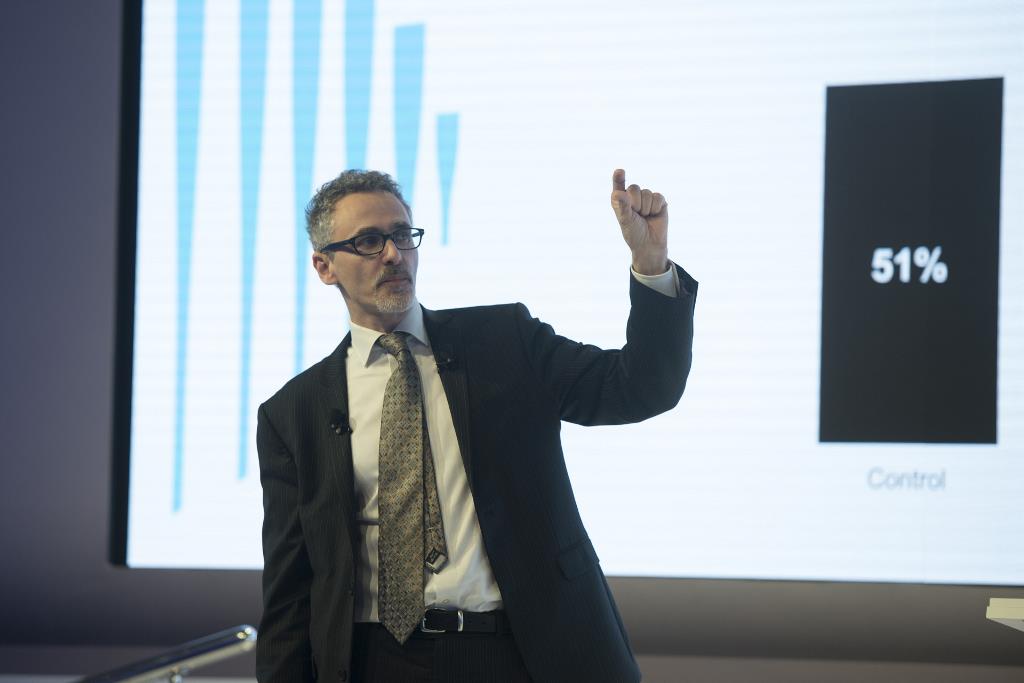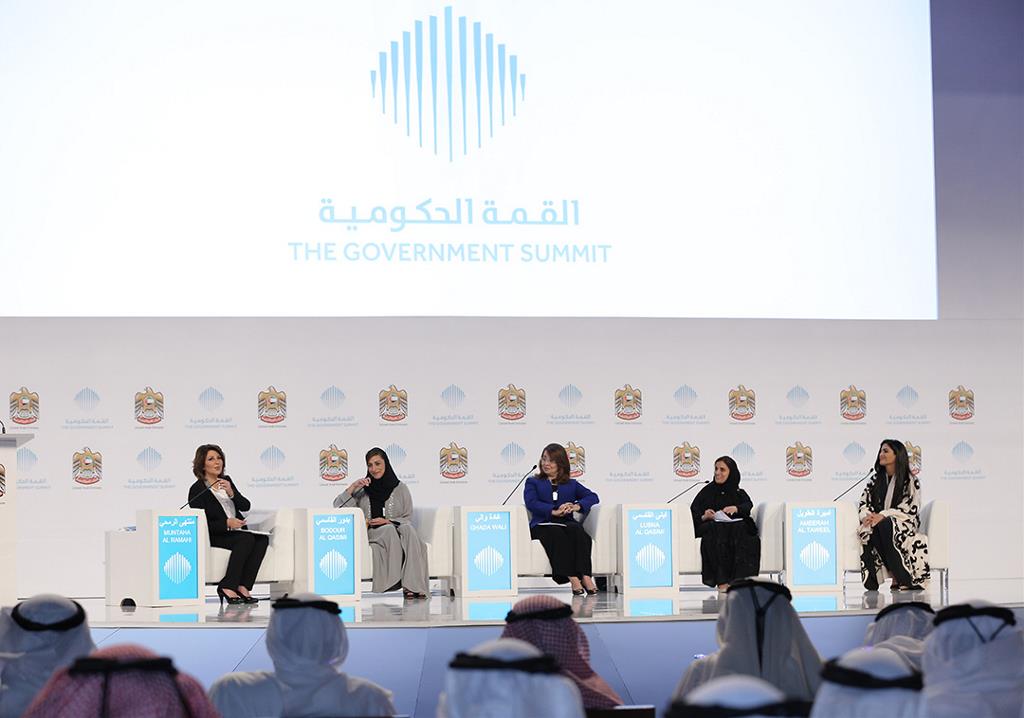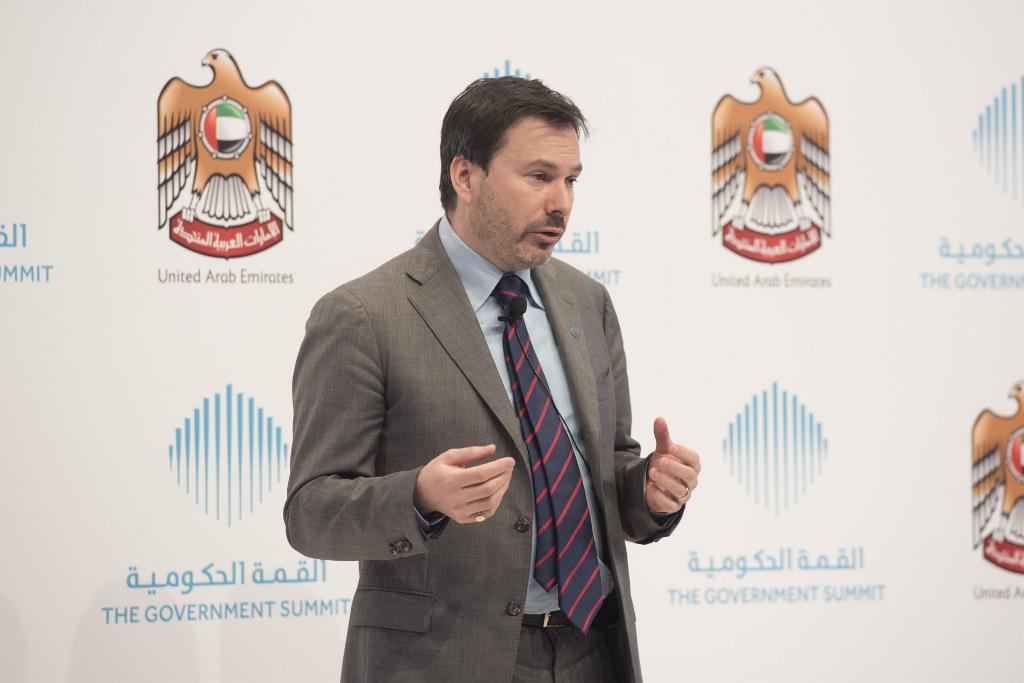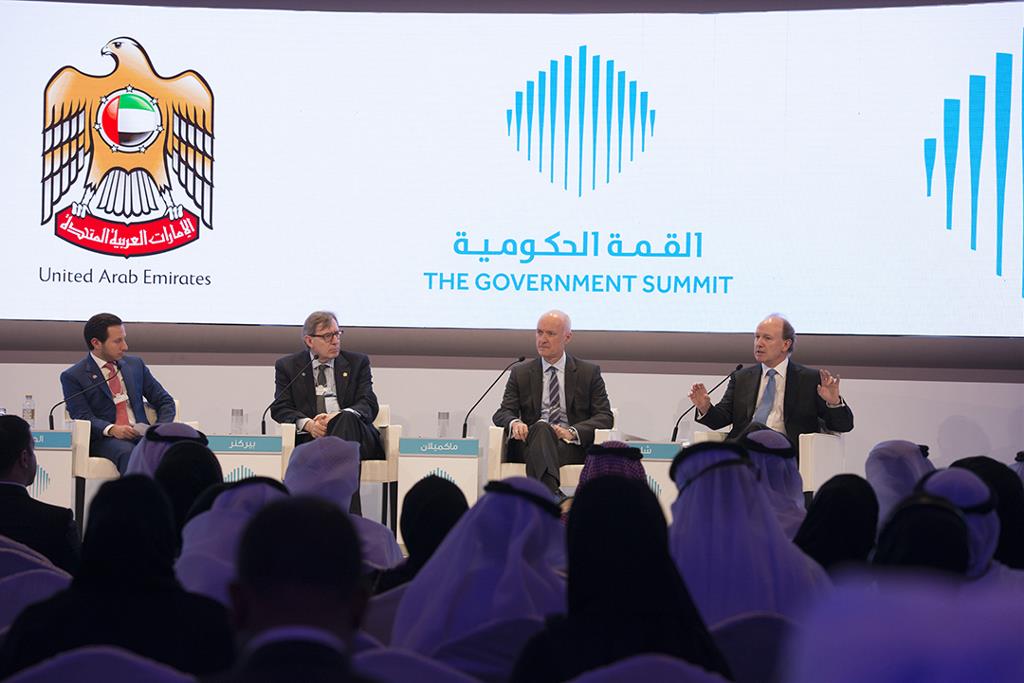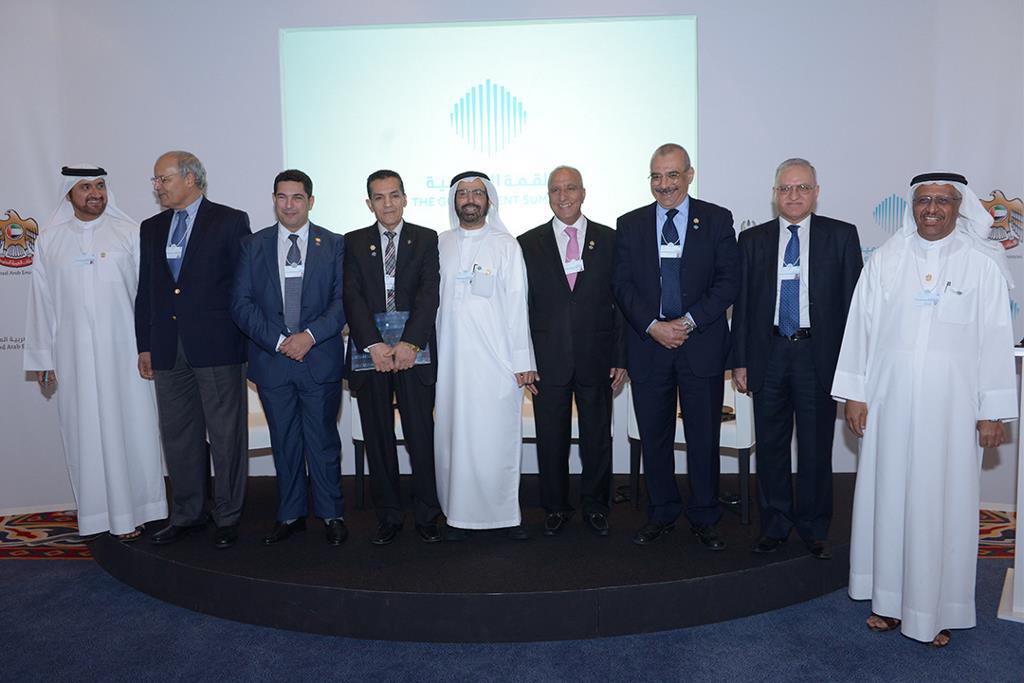Main Address: Leaders must listen to the voice of the people, says Ban Ki Moon
In his main address at The Government Summit 2015, Ban Ki Moon said: “We are the first generation that can end poverty and we may be the last generation that can stem the impact of climate change.”
He commended the UAE for declaring 2015 the Year of Innovation. “For the UN and the world this is the year to take a transformative step towards a more sustainable and peaceful world,” he said.
In this time of international turmoil, there is a terrible toll for individuals while undermining prospects of peace. At the same time, we need to address the marginalization and exclusion that drive radicalization, he said, emphasizing the need for good governance.
Emphasizing on the need for creating a sustainable future for everyone, the Secretary General said: “Corrupt and inaccessible public institutions breed unrest and instability. For true stability, efficiency in government is more than a matter of smooth functioning. It demands public institutions that truly serve.
“Leaders must listen carefully and sincerely to the voice of the people. What their challenges are, particularly from women who have fought too long and do not have an equal voice,” he said, adding that governments that answer these calls will be strong.
He spoke of three important events taking place this year, which have the potential for far-reaching decisions. The first one of these is the 3rd International Conference on Financing for Development taking place in Addis Ababa in July. “The Addis Ababa conference will be an opportunity to spell out a comprehensive financial framework for global development,” Ban Ki Moon said.
The second is the UN Summit to Adopt the Post-2015 Development Agenda where “leaders are expected to adopt a sustainable agenda.”
The third is the UN Climate Change Conference, which will be held in Paris this December. “Countries must adopt a meaningful climate change agreement. This can be a turning point,” said Ban Ki Moon.
Emphasizing on the role of civil society, he said: “The success of these will depend on accountable and transparent government that engages people in decisions affecting them.”
While acknowledging the potential of information technology to drive change, he underlined the need for universal guiding principles. “Information technology can help people design solutions for development challenges. I have seen e-governance in Northern Europe and youth mobilization in Southern Africa but there are universal principles that guide every country. We need rule of law and equal access for all people,” he said.
He added that the UN harnessed this through the ‘My World’ global survey that reached out to 7 million people around the world, sharing their aspirations, concerns and hopes for a better future.
Speaking of the need for transparency, he said: “When governments open their books to the public, they build trust. Businesses also have great influence. State should reward corporations that are socially responsible.”
In the 70th anniversary of the UN, he urged countries to move toward the dawn of a new era of development, one governance model that is ready for the future, accountable, transparent, inclusive and participative.
He said: “You are the leaders of government and civil society, and when governments and leaders of communities are united there is nothing we cannot overcome. Let us work together to make this world better.”
